How to De-Risk in a VUCA World – CEIBS Global EMBA Singapore Symposium
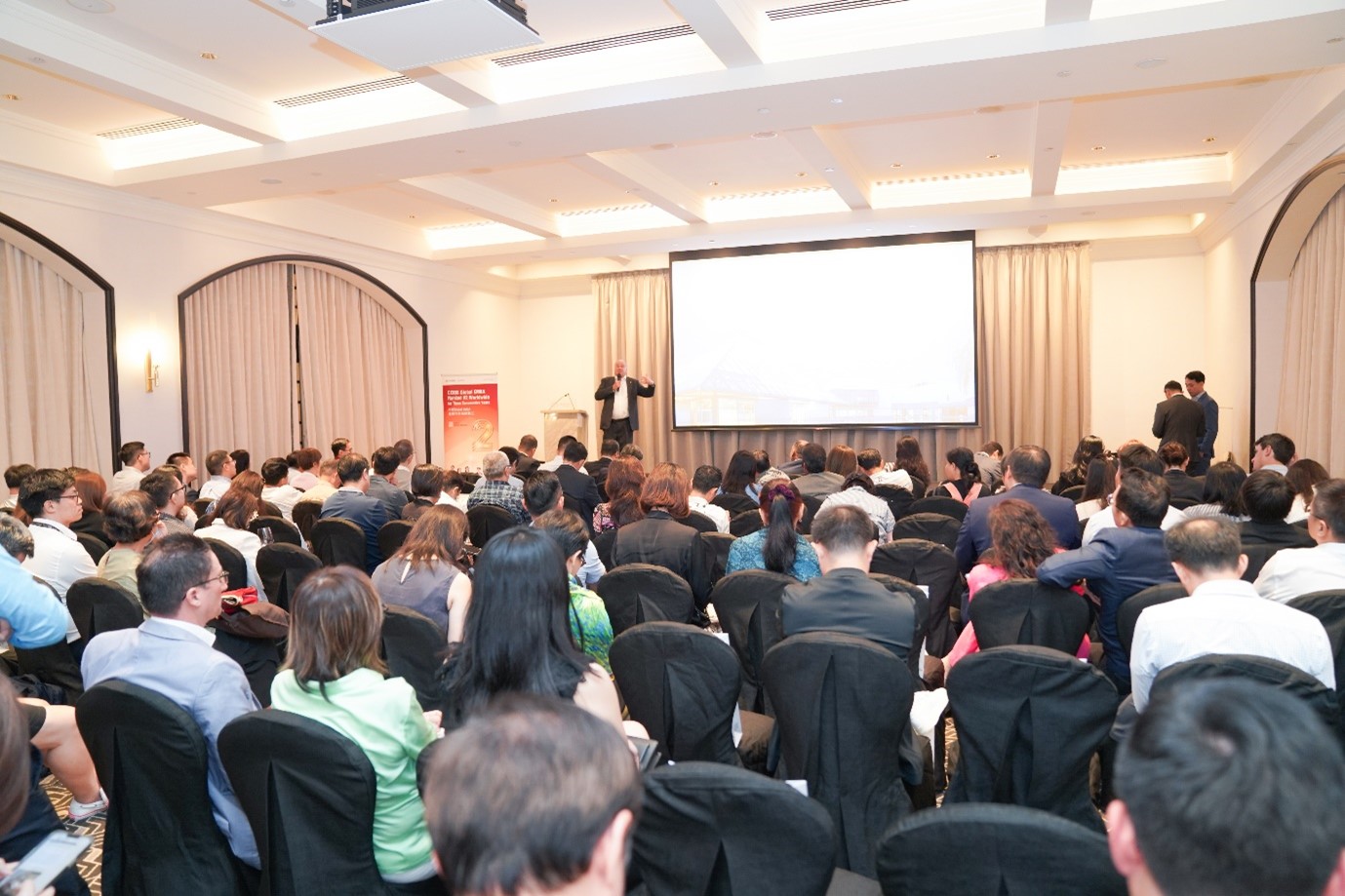
For the first time in the programme’s history, on August 18 CEIBS Global EMBA hosted a symposium event in Singapore under the theme of De-risking and its impact on South-East Asia and China.The CEIBS Global EMBA’s inaugural symposium in the country, this eagerly anticipated event was both well attended and well received by its international audience, who were eager to explore new strategies for companies looking to de-risk and keep pace with fast-evolving trends in a region that is feeling the impact of greater global VUCA (volatility, uncertainty, complexity, and ambiguity).
CEIBS Global EMBA partnered with more than 10 supporting organisations – including Business China Singapore, the Singapore Enterprise Center Shanghai, MayCham China and SingCham Shanghai to make this event a resounding success.
Securing an impressive initial turnout, over 120 business executives from Singaporean, Chinese and MNC companies joined the symposium, many of them representing Singapore’s pillar industries of financial services, shipping, high-end manufacturing, emerging technologies and more. This diversity of background, coupled with the interactive elements of the event, provided the breadth of perspective necessary to dig deep into industry-specific considerations, alongside the broader questions of the day.
Keynote address - Leading with a global mindset
In his keynote speech, CEIBS President (European) Dominique Turpin outlined why it’s necessary to maintain a global mindset in a VUCA world.
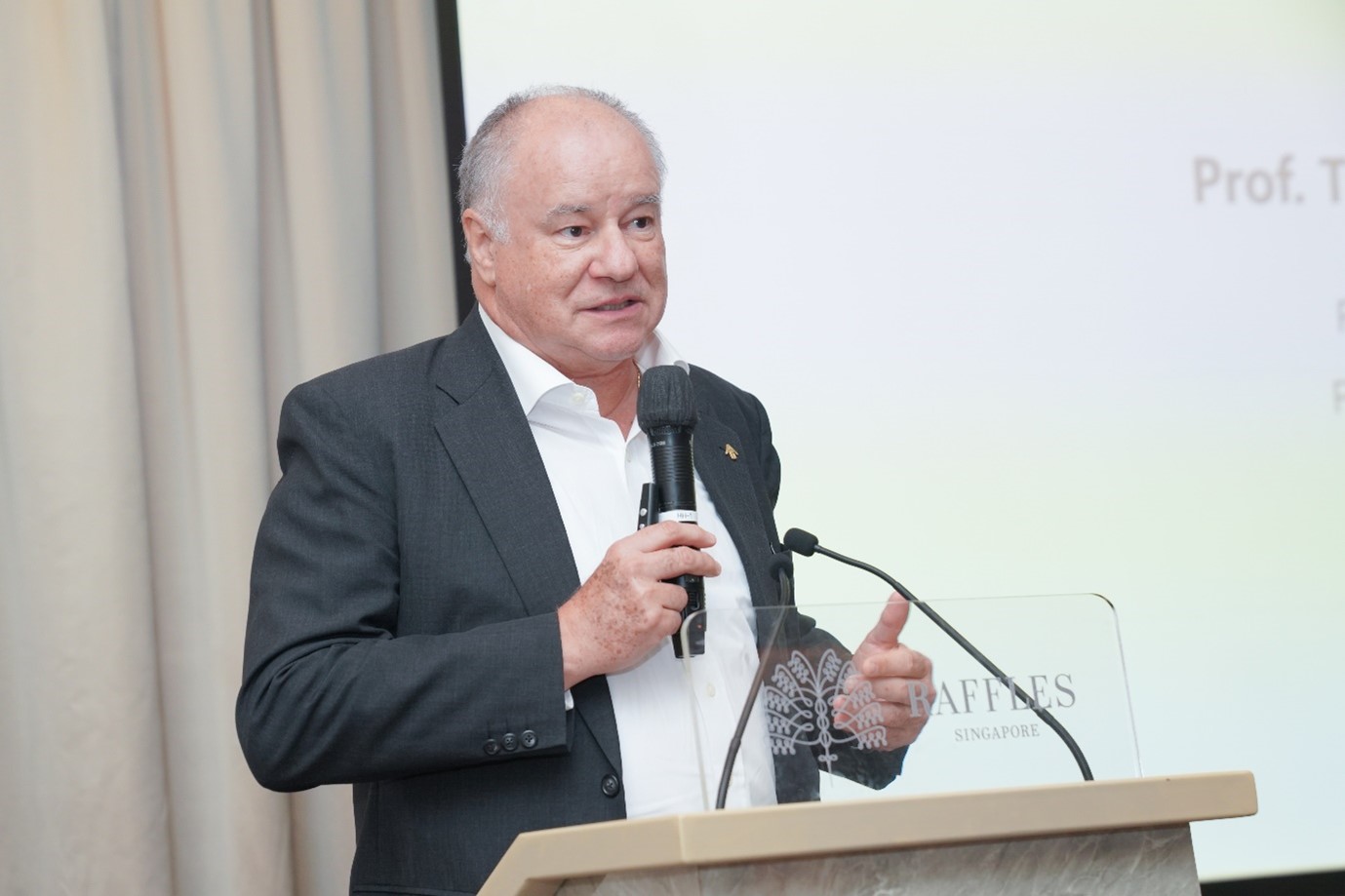
“We live in a world with global interactions at many different levels - political, socio-economic, technological, etc. In practical terms, this means you can run a very local business and still be impacted by global forces, ranging from the proliferation of emerging technologies and business trends to geopolitical shocks and cultural shifts. This kind of global change always brings challenges and risks, but if you are aware of the change and what it signifies, there are also new insights and opportunities to harness,” Prof. Turpin said.
He went on to outline exactly what constitutes a global mindset, and how the following attributes allow executives to anticipate and recognise leading market developments on a global scale:
• Exceptional open-mindedness
• Great sensitivity and empathy
• Ability to connect to and work with people from any part of the world
• Respect for others
• Cultural curiosity
• Multilingualism
• Willingness to experiment
• Cosmopolitanism
Having identified what a global mindset looks like, Prof. Turpin left the audience with a set of five recommendations regarding how to promote this attitude across their organisation.
Be acutely aware of your own cognitive biases – Don’t assume that there is a single ‘right way’ to approach globalisation. The journey requires an open mind and the ability to look beyond your core industry/territory for inspiration.
Promote diversity – Never think of diversity as a ‘box ticking’ exercise; view it as a means of procuring the right talents for the right positions.
Hire people with a curious mind – Focus less on seniority and more on merit, the ability to think creatively and asking the right questions.
Reward international experience – Actively make international experience part of your organisation’s career paths. Make foreign exposure to “key markets” a full part of career development, and only promote those with significant international experience to top global positions.
Pour resources into developing global leaders – Avoid under-investment in executive education, but also invest in junior figures who have the right attitude. Many Asian firms are still hesitant on how to develop global minds – so be bold!
Panel discussion - De-risking and its impact on Southeast Asia and China
Prof. Turpin’s address was followed by a panel discussion on how growing VUCA continues to affect China and South-East Asian economies. Moderated by CEIBS Director of GEMBA Programme Bala Ramasamy, the discussion featured executives from leading financial and logistical firms based across the region:
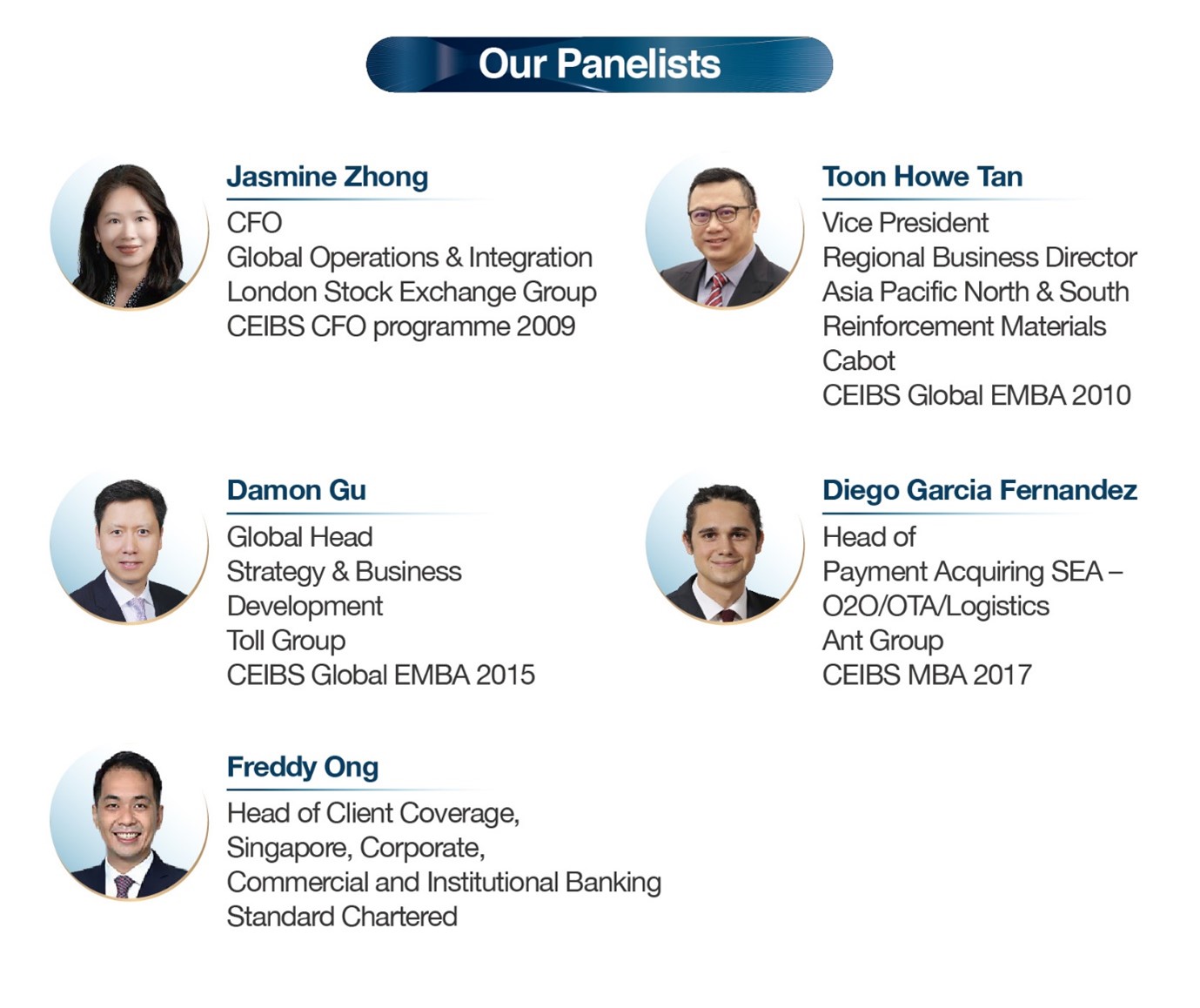
Prof. Ramasamy introduced the subject by briefly outlining China’s recent history from the “engagement period” of the early 90s through to the US’ “China containment policy”, culminating in the current US/China trade war which began in 2018 and continues to this today. He then summarised the impact of these geopolitical trends and how they affect the current Southeast Asian business landscape.
“Numerous academic studies highlight how the trade war is hurting both sides without really affecting trade imbalances one way or the other. China is losing access to key technology sources, while higher tariffs on US imports to China cost each American family an average of US$830 per year. But it’s not just the US and China feeling the pinch; it affects every major trading nation too. Southeast Asia will experience the most intense impact (negatively and positively) from the US/China rivalry, due to the ”neighbourhood effect” and the intensity of the economic relationship among the three entities,” he noted.
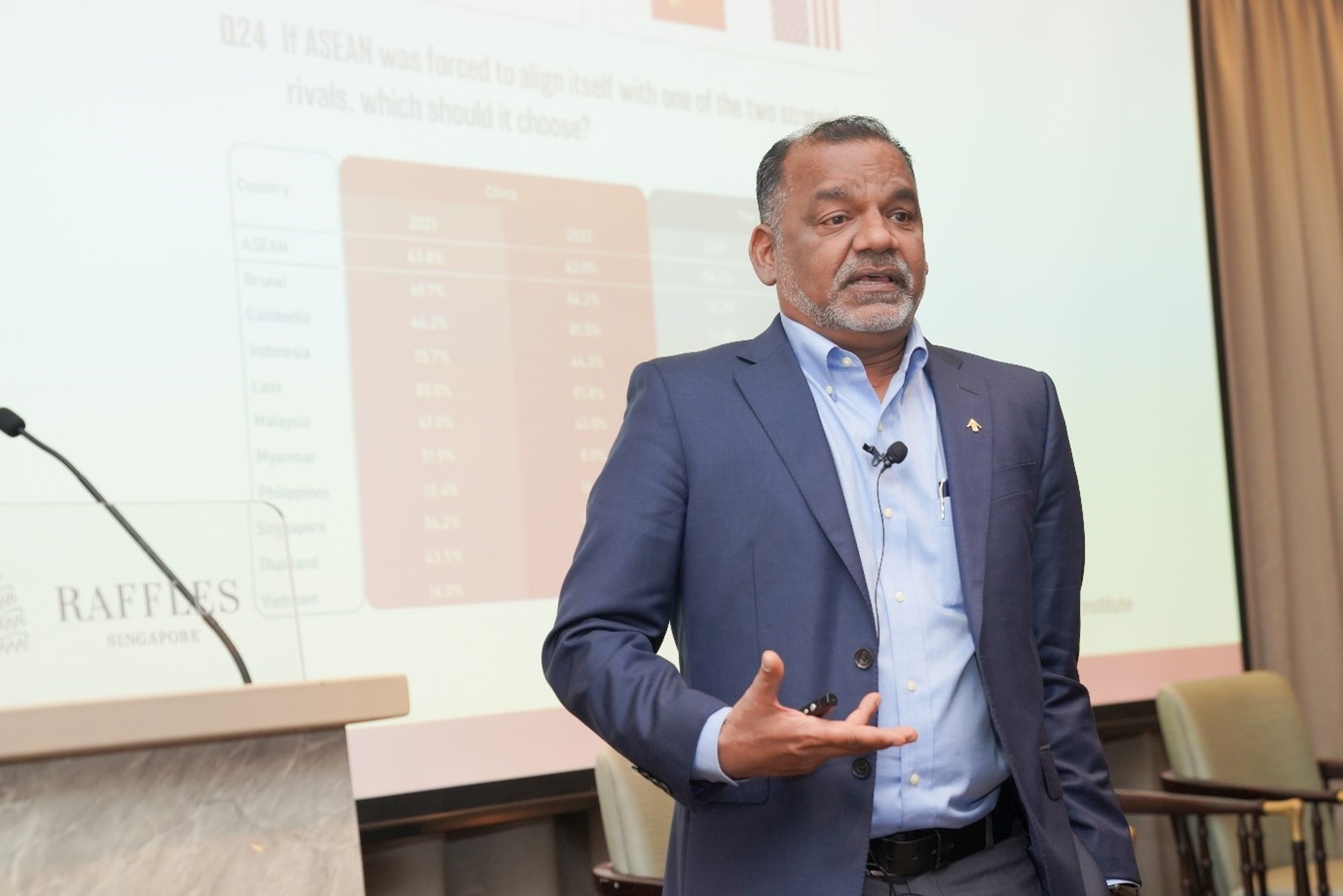
Given the severity of the tensions between these two superpowers, the question of which way to lean is an important one for every ASEAN nation to consider.
As a panel, the executives and Prof. Ramasamy explored how the majority of ASEAN countries are working hard to maintain positive relations with both sides and avoid risking the ire of either. This strategy allows the so-called ”bystander countries” to look for areas of cooperation with either the US, China, or both, exert greater political influence where possible, and avoid being drawn into costly tit-for-tat tariffs. However, the panel agreed that complete neutrality may not be a viable option for much longer, and that picking a side may become inevitable if US/China relations don’t normalise soon.
“Countries in the Asia-Pacific should not have to choose between China and the US, and most of them fervently do not want the choice to be thrust upon them,” Prof. Ramasamy explained.
“How can they be expected to decouple when they need China for economic reasons but also the US for military and strategic considerations? The reality is that these “bystander” countries may have to make a choice since they are caught in the crossfire between the two giants. Another alternative is to create a neutrality alliance among themselves, but time is running out to make this happen,” he added.
Going around the panel, the professor asked each of the assembled contributors to give their industry-specific insights on what they are currently doing to manage and lessen the kind of geopolitical risks that current events are creating. Their responses ranged from seeking effective ”China plus one” solutions for their manufacturing and supply chains, to actively promoting stronger links with other “bystander” ASEAN and Central/South American countries, whose economies may prove increasingly important in the coming years if the superpowers are determined to continue a sustained trade war.
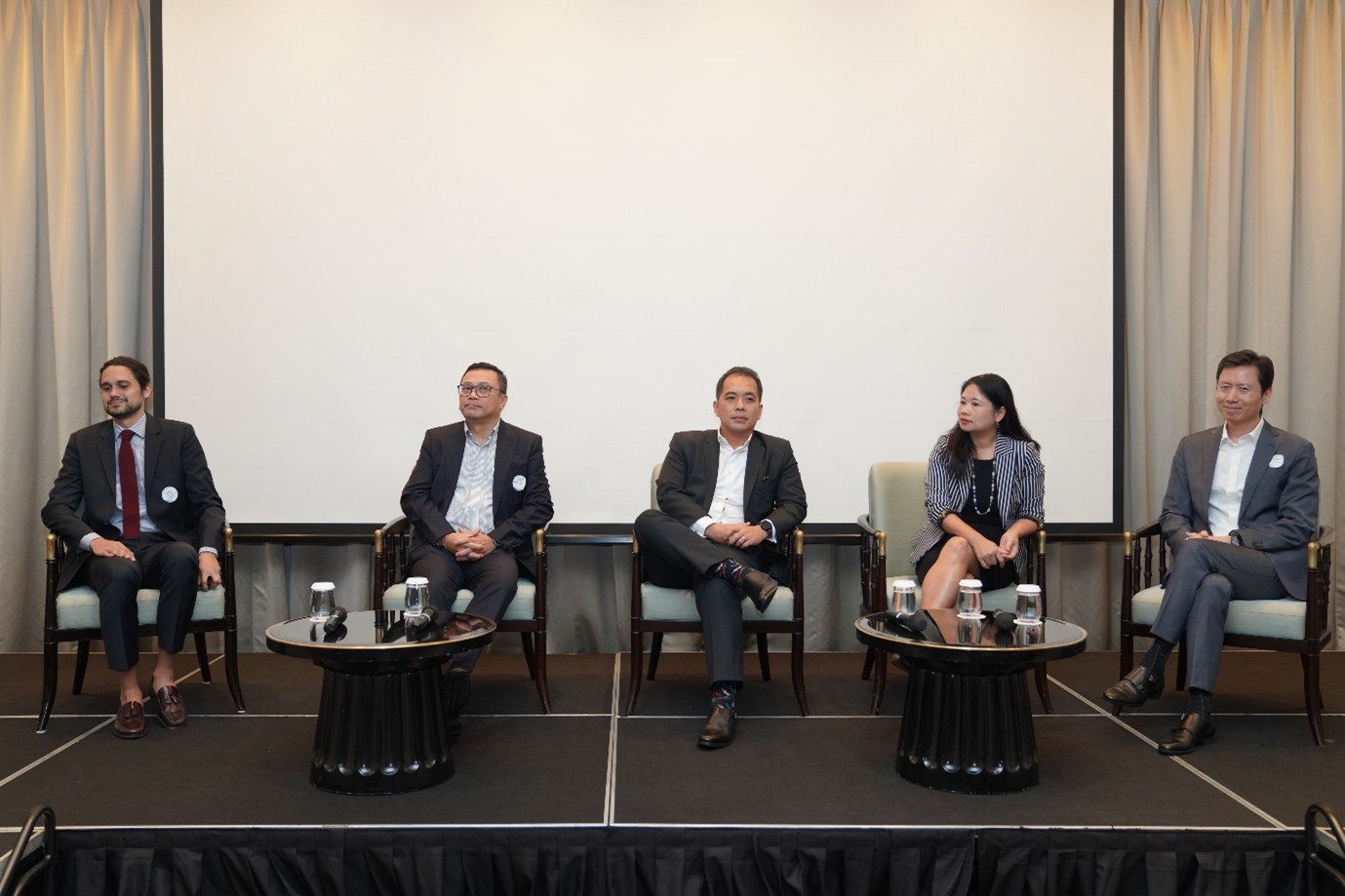
As the inaugural Singapore-based CEIBS Global EMBA Symposium, this event will hopefully be the first of many to bring the programme’s unique global perspective, strongly informed by a deep understanding of China’s business culture and evolving economic landscape, to another vital ASEAN business hub.












